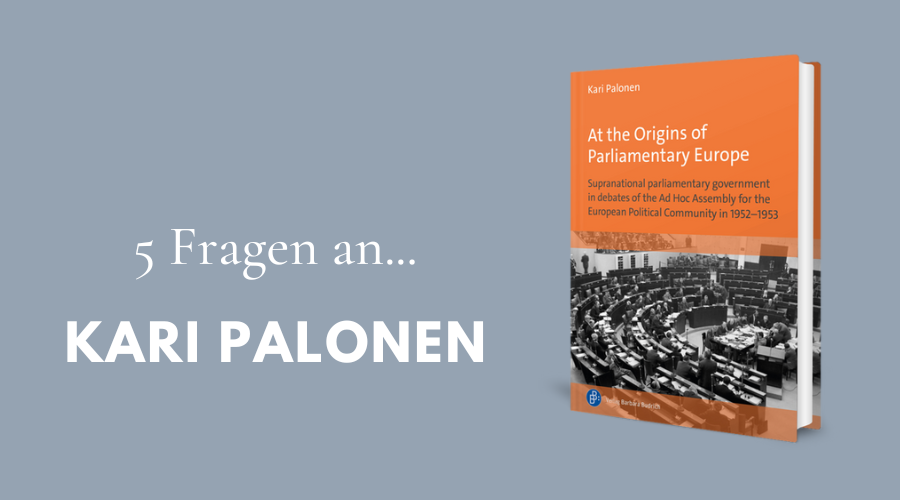Welche Erkenntnisse erlaubt der frühe Politisierungsprozess der Europäischen Union? Welche Konzepte wurden entwickelt, welche umgesetzt, welche nicht?
Wir haben ein Interview mit Kari Palonen geführt, Autor des Buches „At the Origins of Parliamentary Europe. Supranational parliamentary government in debates of the Ad Hoc Assembly for the European Political Community in 1952–1953”. In dem Interview fragen wir nach der Idee hinter der Publikation, was den Autor bei seiner Arbeit am meisten überrascht hat und welche Lehren wir für heute aus den Erkenntnissen ziehen können.
Sie können das Interview mit Kari Palonen zu „At the Origins of Parliamentary Europe” auf unserem englischsprachigen Blog lesen:
www.budrich.de/en/news/interview-kari-palonen
Über die Monographie „At the Origins of Parliamentary Europe. Supranational parliamentary government in debates of the Ad Hoc Assembly for the European Political Community in 1952–1953“
In 1952, politicians from Germany, France, Belgium, Italy, the Netherlands, and Luxembourg formed an Ad Hoc Assembly with the aim of drafting a constitution for a future European Political Community. Rediscovering this previously neglected origin of parliamentary Europe, Kari Palonen investigates the significance of the Ad Hoc Assembly for the politicization of European integration. He delves into how the debates of the assembly functioned as a project of European integration after the Second World War, interpreting it as a moment in the political theory and conceptual history of parliamentarism that opens new perspectives on the later stages of the parliamentarization of the EU.
The book analyses a parliamentary alternative for supranational Europeanisation of politics. The guiding idea of the book is: supranationalism and parliamentarism mark two aspects of politicisation of Europe by overcoming the order of nation-states and intergovernmental relations. The concept of politicisation is discussed with my typology of politics as a contingent activity, divided to politicisation, polity, politicking and policy aspects (applied for example in my Politik als parlamentarischer Begriff). Supranationalism implies politicisation by opening a polity level that transcends and challenges the existing order. Parliamentarism politicises issues by submitting them to debate from opposite perspectives, including the election and dismissal of government.


